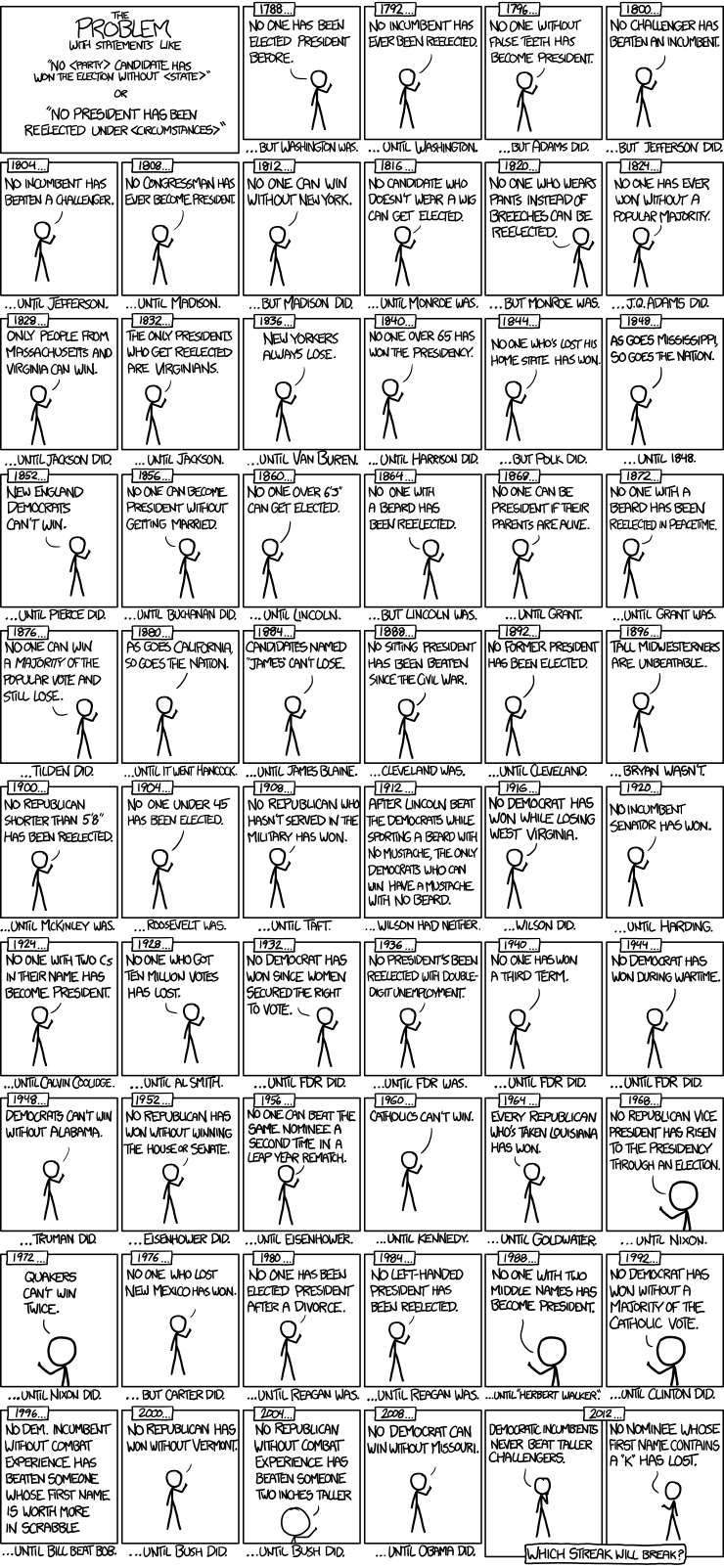First, though, the seminar was actually about phenomenons like "FIRST!" comments on internet articles, being the first music review blog site to post an unknown artist, the contestation of 'first's (an example she used was that Tyra Banks was the first black woman on the swimsuit edition cover of Sports Illustrated, and Beyonce was the first black non-model woman to make the cover a few years later--her point was that there are too many 'firsts' being measured).
On that last point, she didn't bring up sports statistics or political ones, but they offer so many examples! Seattle was so excited about the Seahawks winning their first Superbowl game this year, but in 2006, Seattle was equally thrilled to be competing in their first Superbowl game. When they made it to the Superbowl this time, they didn't say, "it's our second Superbowl game!" They focused on the current line-up, on their chances against the Broncos, etc. The term "second" wasn't used, because only "first" makes a good headline.
In terms of political examples of celebrating 'firstness', there are tons of examples, best illustrated in this cartoon:
My favourite part about this comic is that they don't even mention the fact that Obama was the first African-American President--no, he's the first Democrat to win without Missouri, and the first Democratic incumbent to beat a taller challenger. (Also, Reagan was really the first lefty?!)
Another interesting political first that I'd thought about was Margaret Thatcher. Growing up in the States, I only ever knew her as the first female Prime Minister of the UK. I never heard anything about the mining industry, the IRA, the privatisation agenda--I didn't even know which party she was in (the blue dresses weren't a clue, either, as US Democrats use blue). Of course, it didn't take long for me to learn about the Thatcher legacy once I lived in the North of England--the 'Margaret Thatcher, Milk Snatcher' story is my favourite example of her evil deeds. I remember getting free milk in Head Start--it's a step too far, even for the uber-capitalistic US! At any rate, when Thatcher died, all my family remembered was that she was the first female Prime Minister of the UK. They didn't understand the criticism and downright hatred being expressed in the media, and I found it hard to explain the whole context (they did agree that the milk snatching was terrible, though). It's an example of how "firstness" can be a trivia game summary version of a much more complex, multifaceted story.
Devon Powers also brought up the concept of firstness as a form of promotion, i.e. best of lists and 'top ten' lists. That one made me think of further examples, like the way that Google search results appear in order of (paid advertising and then) popularity.
As she mentioned in the Q&A, this project really could go in many different directions. Even though it didn't go in the directions I thought it would, it was definitely interesting and it was nice to be back at the research seminars again. Next week's involves the world of 'homemade' handicrafts on sites like Etsy. As a fan of "Regretsy", a now-defunct blog by the brilliant April Winchell that mocked the 'fails' (why can't they just use 'failures'?) of Etsy, I'm looking forward to that one, too!
